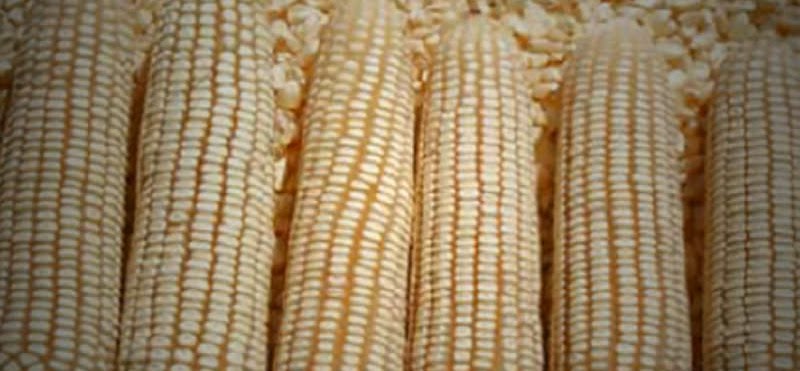Nqobile Bhebhe,Zimbabwe
ZIMBABWEAN authorities say the southern Africa country, once a breadbasket for the continent has 500 000 tonnes of maize locked away in its strategic grain reserves.
The stocks, according to Davis Marapira who is the Lands, Agriculture and Rural Resettlement Deputy Minister ‘can sustain us for close to a year’.
Zimbabwe faced severe drought in 2016 and early 2017 leaving the country reliant on grain imports.
The current prolonged dry spell has trigged a state of panic with talk of looming drought mounting.
“While we acknowledge that we had below average rainfall so far this summer cropping season, people should not panic because we have adequate maize in our strategic grain reserve. This can sustain us for close to a year” said Marapira as quoted by the Herald newspaper.
“Also our crop is not a complete write off. There are other areas where crops are still in a better condition. We also have crops under irrigation so people should not panic at all,” he said.
Preliminary indications are that about 30 percent of crops planted since last year nationally has become a write off as the dry spell persists.
Government is planning to embark on national crop and livestock assessment.
In November last year, the Zimbabwe National Statistics Agency (Zimstat) said the country imported maize worth $112 million in the first nine months of that year.
The imports came despite government praising command agriculture, which was seen as an import substitution exercise.
Command agriculture was unveiled to ensure food security and reduce dependency on imports.
It had a budget of $500 million under which it aimed to produce 2 million tonnes of maize from 400 000 hectares of land.
Farmers and agricultural experts forecast maize production for the 2017/18 agricultural season to drop below last season’s figure of 2, 15 million tonnes.
The tonnage was the highest yield in two decades.
The year was the best agricultural season in many years when Zimbabwe recorded some of its highest rainfall since independence in 1980.
The 2018 national budget had projected a maize output of 2, 2 million tonnes this year.
Federation of Farmers’ Union president Wonder Chabikwa recently caused a stir when he predicted massive drought.
Chabikwa drew comparisons with the deadly drought of 1992 that killed more than a million cattle, goats and donkeys and left millions of people terribly hungry.
“It’s very bad and most crops are at permanent wilting stage” he said.
He added, “If it rains right now up to March, the situation might improve but we will never achieve what we achieved last season. We are riding on a thin line”.
The crop situation throughout the country is fast deteriorating as the unexpected high temperatures have resulted in serious moisture deficits and below average crop establishment.
As the season progresses, the country’s major food crop especially in regions III, IV and V, may soon be declared a write-off.
In its January update, the Famine Early Warning Systems Network (Fewsnet) said the “abnormal dryness had resulted in severe moisture stress for most crops”.
“In parts of the southern and northern regions some farmers are close to completely writing-off the season. There has been little ground water recharge and surface water collection in most areas, resulting in poor water availability and access.
“The poor rainfall performance is also expected to affect the availability of seasonal green crops for consumption, as well as on-farm casual labour opportunities, rates, and other livelihood sources,” Fewsnet said.
“The high likelihood of below-average rains for the remainder of the season is likely to significantly reduce crop yields and harvests across most parts of the country.”








